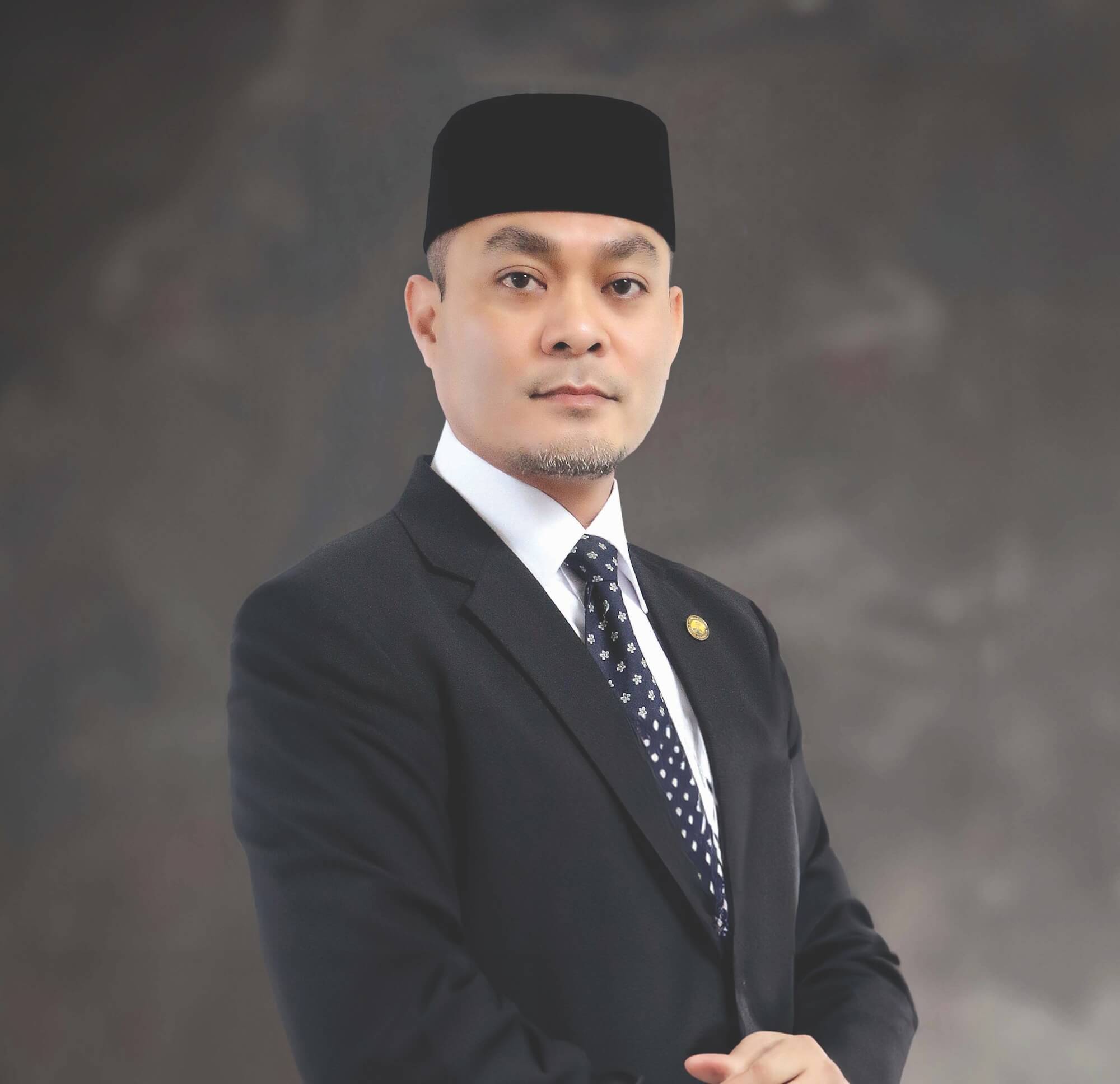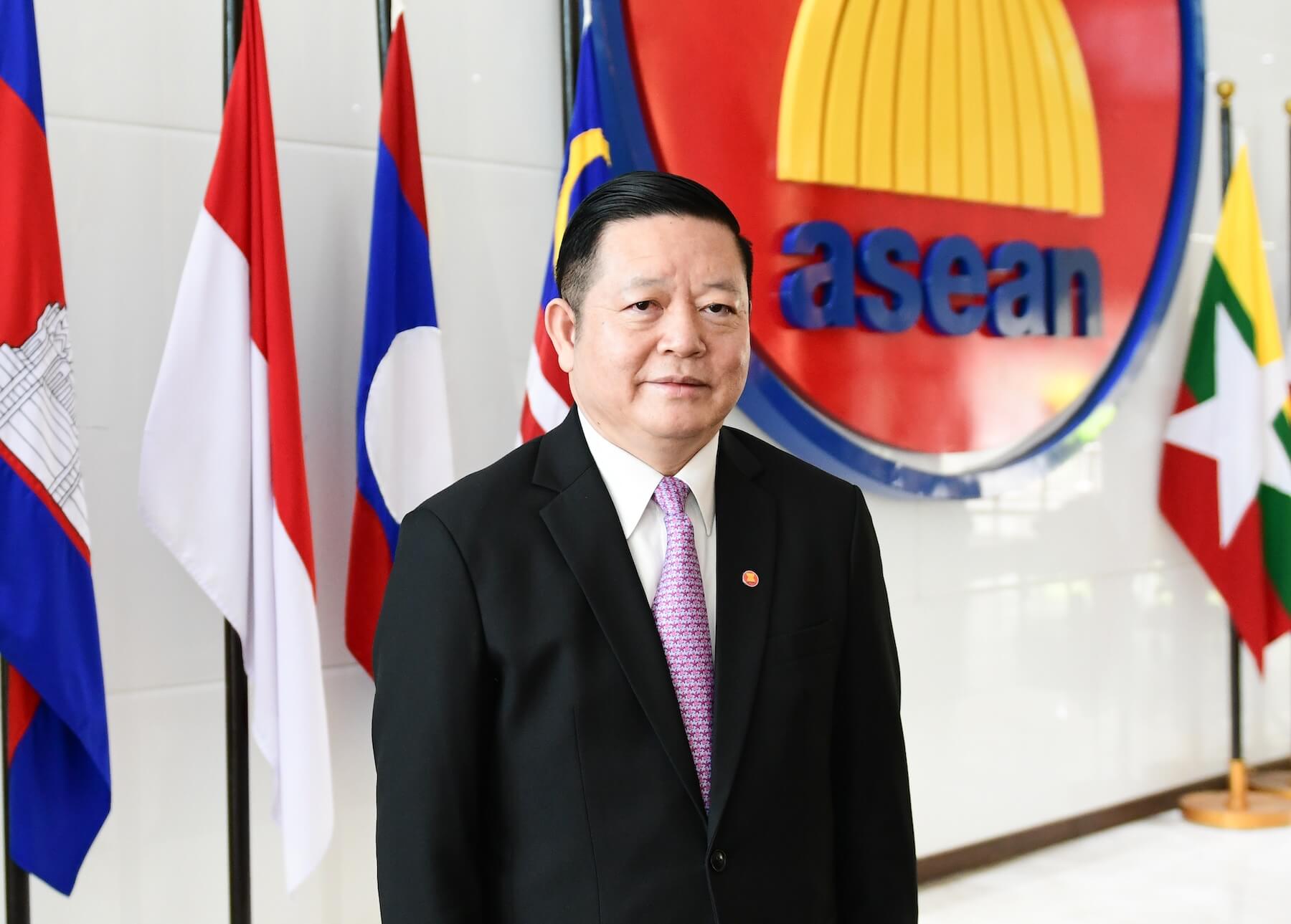


Dato Seri Setia Awang Haji Ahmaddin bin Haji Abdul Rahman reflects on the region's collective shock and grief over the 2004 Indian Ocean Tsunami, and how the response chartered the course of ASEAN cooperation in disaster management. Two decades hence, ASEAN has cemented its capacity for coordinated and effective disaster management. As Chair of the AMMDM, Brunei Darussalam aims to further step up regional efforts and focus on "Building a Resilient ASEAN through Inclusive and Sustainable Disaster Recovery."
Brunei Darussalam was among the ASEAN Member States that launched a humanitarian response to the Indian Ocean Tsunami. Could you elaborate on the role that Brunei Darussalam played as part of ASEAN Member States’ response to the tsunami?
As the Chair of the ASEAN Ministerial Meeting on Disaster Management, it is with great honour that I mark the 20th anniversary of the Indian Ocean Tsunami during Brunei Darussalam’s Chairmanship.
This commemorative video serves as a poignant remembrance of all those affected by the Indian Ocean Tsunami, as a tribute to the many individuals and organisations that contributed to the response and recovery efforts twenty years ago.
The 2004 Indian Ocean Tsunami was undoubtedly a catastrophic event that underscores the importance of regional cooperation. In the aftermath of this tragedy, ASEAN demonstrated remarkable solidarity and a swift response. The immediate mobilisation of search and rescue teams, medical personnel, and relief supplies from all ASEAN Member States showcased the region’s commitment to humanitarian assistance. This was a testament to the dedication and professionalism of the teams deployed at that time.
Brunei Darussalam was deeply affected by the suffering of our ASEAN neighbours. In the spirit of ASEAN solidarity, Brunei Darussalam played a significant role in the collective response to the Indian Ocean Tsunami on 26 December 2004. Our nation extended a helping hand by providing immediate aid to those in need. Through the Sultan Haji Hassanal Bolkiah Foundation, Brunei further contributed to the construction of 70 houses, along with a mosque for 500 worshippers, an orphanage, a religious school, and a health centre.
His Majesty The Sultan and Yang Di-Pertuan of Brunei Darussalam demonstrated Brunei’s unwavering commitment to regional solidarity by visiting the tsunami-affected region. His unwavering leadership and compassion have been instrumental in guiding our efforts.
The devastating impact of the 2004 Indian Ocean Tsunami serves as a stark reminder of the unpredictable nature of disasters and their potential to disrupt lives on a massive scale. The swift and coordinated response from ASEAN Member States during this crisis exemplifies the region’s strength and solidarity in times of adversity. Without a doubt, the legacy of their work, as well as the professionalism and dedication displayed by those involved, continues to inspire and guide our disaster management strategies today.
This tragic event underscored the imperative to continuously enhance our preparedness, response capabilities, and resilience to future disasters.
What lessons were learned from the tsunami response that have been applied to improve ASEAN’s disaster management framework?
The 2004 Indian Ocean Tsunami was a significant wake-up call for ASEAN, exposing substantial gaps in regional disaster management systems. The key lessons learned from this catastrophe have been instrumental in shaping ASEAN’s disaster response framework.
Since the Indian Ocean Tsunami, ASEAN has made remarkable progress in disaster management and regional cooperation. The region has developed robust mechanisms and frameworks to better coordinate disaster response and humanitarian assistance, ensuring a more resilient and prepared ASEAN, with no one left behind.
Continuous improvement and adaptation remain essential to address the evolving challenges posed by natural disasters. The urgent need for robust regional mechanisms, enhanced coordination, capacity building, and effective monitoring systems to expedite disaster response has never been more apparent.
Today, ASEAN is proud to have the ASEAN Agreement on Disaster Management and Emergency Response (AADMER), the world’s first and only legally binding agreement that serves as a comprehensive framework for coordination in all aspects of disaster management.
There are also other key mechanisms, such as the ASEAN Emergency Response and Assessment Team (ASEAN-ERAT), the Disaster Emergency Logistics System for ASEAN (DELSA), ASEAN standby arrangements, and the ASEAN Disaster Monitoring and Response System (DMRS), among others.
Furthermore, the establishment of the ASEAN Coordinating Centre for Humanitarian Assistance on disaster management (AHA Centre) was a pivotal moment, signifying ASEAN’s commitment to enhancing its response capabilities.
In Brunei Darussalam, the Indian Ocean Tsunami and the AADMER served as crucial catalysts for significant advancements in disaster management. The subsequent enactment of the Disaster Management Order 2006 provided the legal and institutional framework for a robust response system.
At its core, the National Disaster Council was established to orchestrate a strategic and unified approach to disaster management. Meanwhile, the National Disaster Management Centre was tasked with operationalising disaster prevention and mitigation, preparedness, response, and recovery efforts, while also supporting the region’s overall efforts in disaster risk reduction.
These mechanisms all serve to increase the speed, scale, and solidarity of ASEAN’s response, embodying the spirit of “One ASEAN, One Response.”
It is through such collective efforts that we can build a more resilient ASEAN, capable of overcoming the many challenges that come our way.








